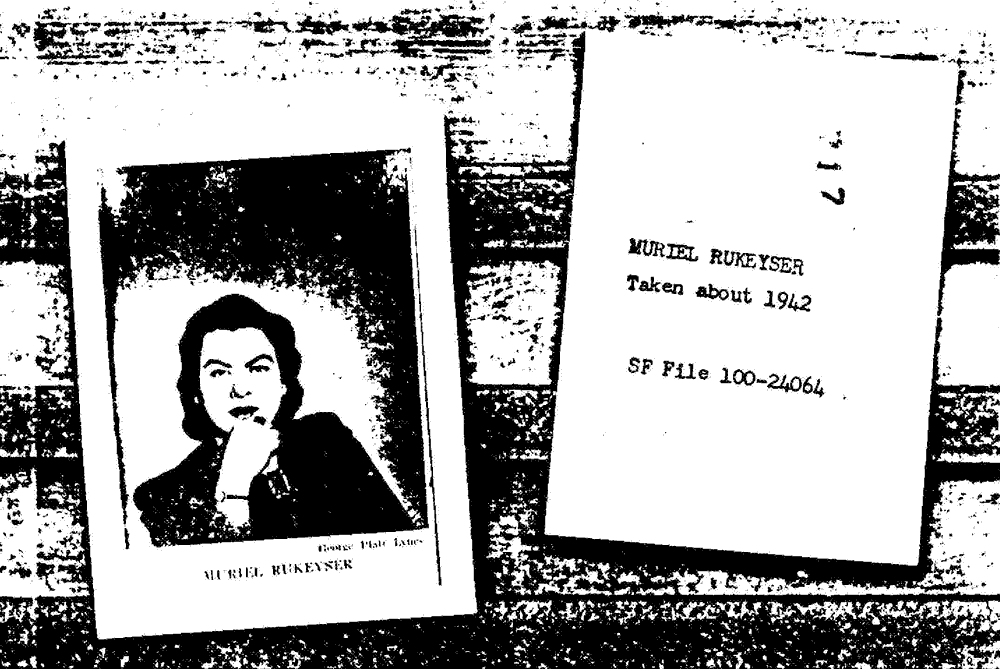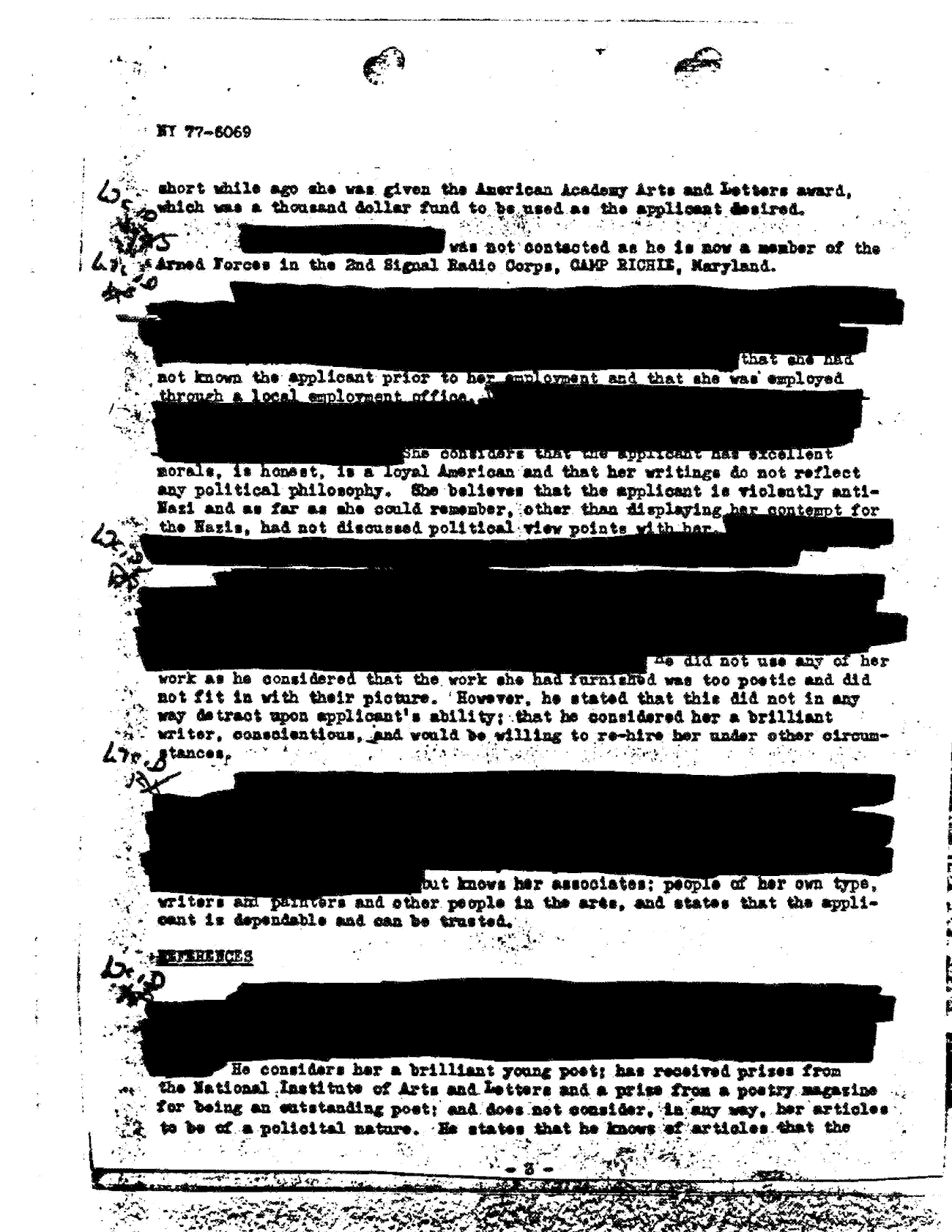Every poem is an action.
Every action is political.
Every poem is political.
**
A lover, once: You can’t say every action is political. Then the word political loses all meaning.
He added: What is political about this moment?
I was washing his dishes. I had left the water running.
**
The first time I confronted erasure as an aesthetic tactic I was horrified. I don’t remember exactly when or what it was. I know I was in the United States. I know it was an erasure undertaken by a poet of the United States. I know it was after the invasions of Iraq and Afghanistan, after “extraordinary rendition” and disappeared men flown to secret sites in Somalia, certainly after attempted annihilation indigenous languages and peoples, after the enforced illiteracy of black slaves, certainly after Deir Yassin and the establishment, too, of this settler colonial nation. I know I thought of erasure as what a state does.
Let’s stick with this initial horror for now. After all, the proliferation of erasure as a poetic tactic in the United States is happening alongside a proliferation of our awareness of it as a state tactic. And, it seems, many erasure projects today hold these things as unrelated.
Still, when it comes to erasure, this very form of palimpsest, the ghost is not only death or the degradations of time—the ghost is the state itself.
**
Erasure means obliteration.
The Latin root of obliteration (ob- against and lit(t)era letter) means the striking out of text.
Poetic erasure means the striking out of text.
Poetic erasure has yet to advance historically.
Historically, the striking out of text is the root of obliterating peoples.
e.g. Hilary Clinton said in her 2008 Presidential campaign: we would be able to totally obliterate them.
The Iranians, she said.
She said, That’s a terrible thing to say but
**
Moazzam Begg is a British citizen who was arrested in Pakistan and detained for three years in Guantánamo. While there, Begg received a heavily-censored letter from his seven-year-old daughter; the only legible line was, “I love you, Dad.” Upon his release, his daughter told him the censored lines were a poem she had copied for him: “One, two, three, four, five, / Once I caught a fish alive. / Six, seven, eight, nine, ten, / Then I let it go again.”
from Poems from Guantánamo: The Detainees Speak (University of Iowa Press, 2007)
**
In 2008, I read a New York Times article about Salim Hamdan, a Guantánamo prisoner that was subject of a Supreme Court decision overruling the legitimacy of the military commissions set up there. This article dealt with his mental health. It had deteriorated.
They say Mr. Hamdan has essentially been driven crazy by solitary confinement in an 8-foot-by-12-foot cell where he spends at least 22 hours a day, goes to the bathroom and eats all his meals. His defense team says he is suicidal, hears voices, has flashbacks, talks to himself and says the restrictions of Guantánamo “boil his mind.”
In response:
Guantánamo, a military spokeswoman said, does not have solitary confinement, only “single-occupancy cells.”
And:
The prosecutors argued that the way that Mr. Hamdan was being held did not constitute solitary confinement in part because “detainees can communicate through the walls.”
They meant:
In the cells where Mr. Hamdan and more than 200 of Guantánamo’s 280 detainees are held, communication with other detainees is generally by shouting through the slit in the door used for the delivery of meals.
At the time of the article’s publication, he had been imprisoned for 6 years and had only been allowed only two phone calls home to Yemen. After his imprisonment, a daughter, whom he had yet to see, had been born. Then, one line:
Mail is late and often censored, lawyers say.
**
Erasures I have written: 1) a series of imagined letters to Salim Hamdan from his wife, redacted by the Joint Task Force; 2) a mimicked attempt to translate, with my own broken Farsi, letters an uncle wrote from the frontlines of the Iran Iraq War shortly before he was killed in said war (one of a million).
With my uncle’s letters, sounding the words out Arabic letter by Arabic letter was, well, humbling. There was so much I could not access. I could have had a family member translate it word by word, but that felt inauthentic. My inability to translate was like my inability to speak to him physically and that inability, I thought, should remain. At one point, however, I recruited an Iranian friend and asked “What is m-y-n [I can never recall the proper names of the letters, just their English near equivalents]?” “Meen,” she said, worried. “Meen” means “landmine”. So that in the middle what I could not access—his fear, his longing for home, his food cravings and jokes—a mine appeared, right in fraught space between us.
Both of these utilizations of erasure are letters written by myself and then obliterated. Neither manipulate actual source materials as erasure often does. Both are about communication interrupted by state and political forces. Both attempt to parrot the loss and attempt really only that.
**
In “A Note on Process,” Srikanth Reddy on assembling Voyager based on Kurt Waldheim’s memoir:
I then deleted language from the book, like a government censor blacking out words in a letter from an internal dissident.
**
We can look to any number of state redacted documents to make these next points. Let’s just start here:
**
It is from the American poet Muriel Rukeyser’s FBI file.

Click for larger image
She was surveilled in these states for decades. Most of the documents are dull and recount what so and so neighbor said about her American-ness, her uprightness, her Marxism. I try not to think of what my neighbors would say. They have yet to learn to pronounce my name.
**
Objectives of state redaction as set forth by Muriel Rukeyser’s redacted file:
**
Possible political and aesthetic objectives of poetic erasure as set forth by a multiplicity of sources:
**
The political is not topical or thematic, it is tactical and formal. It is not, as its strictest definition supposes, something relegated to legislative halls, but something enacted wherever power is at hand, power being at hand wherever there is a relation, including the relation between text and reader.
I’m interested in the partial lists above for two reasons: 1) I do not wish to replicate state control or participate in obliteration’s etymology; 2) I am interested in what activism can learn from poetry.
What I mean by this second point is that I believe failure in activism is often a deficiency of lyricism—an inability to collapse time and distance, a refusal to surprise or “make it new,” a willingness to calcify into rigid and limiting expectations, a closure to self-transformation, an unconsidered we or you, to name just a few. I believe social quests for freedom have much to learn from freedom enacted on the page. And that this conversation should happen on the level of reading and not, as it often is, solely on the level of intention. Meaning a political reading should happen with as much with Matthea Harvey’s Of Lamb as it should with M. NourbeSe Philip’s Zong!
It’s a conversation that should happen especially with erasure, the most blatantly political forms of late. Erasure may well be the closest poetry in English has gotten to role of the state.
To not attempt this conversation wastes the opportunity to create a cultural acumen that can inform political change. It wastes the danger—because poetry is, if we will it, a dangerous business in this republic.
**
One, two, three, four, five,
Once I caught a fish alive.
Six, seven, eight, nine, ten,
Then I let it go again.
